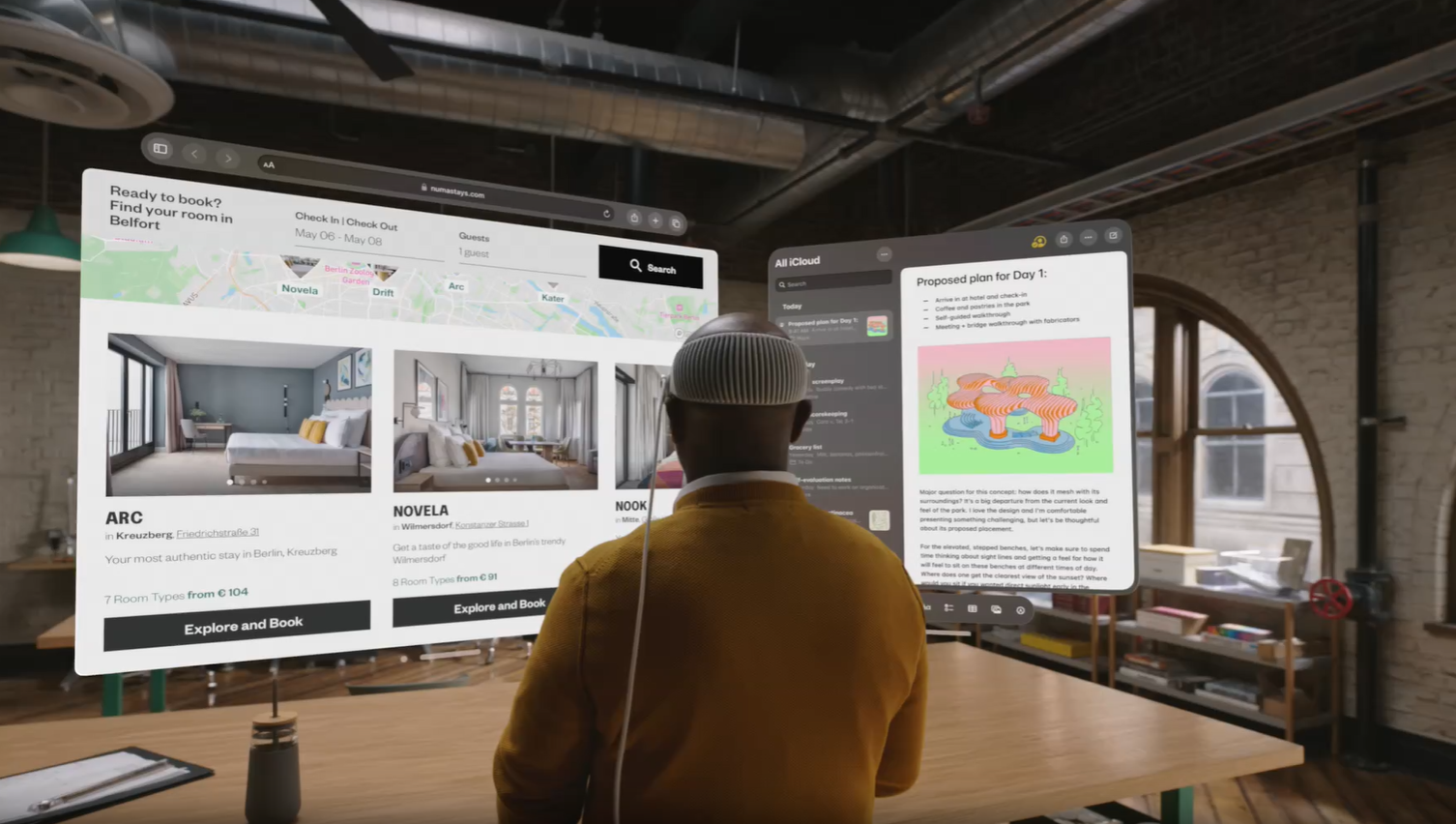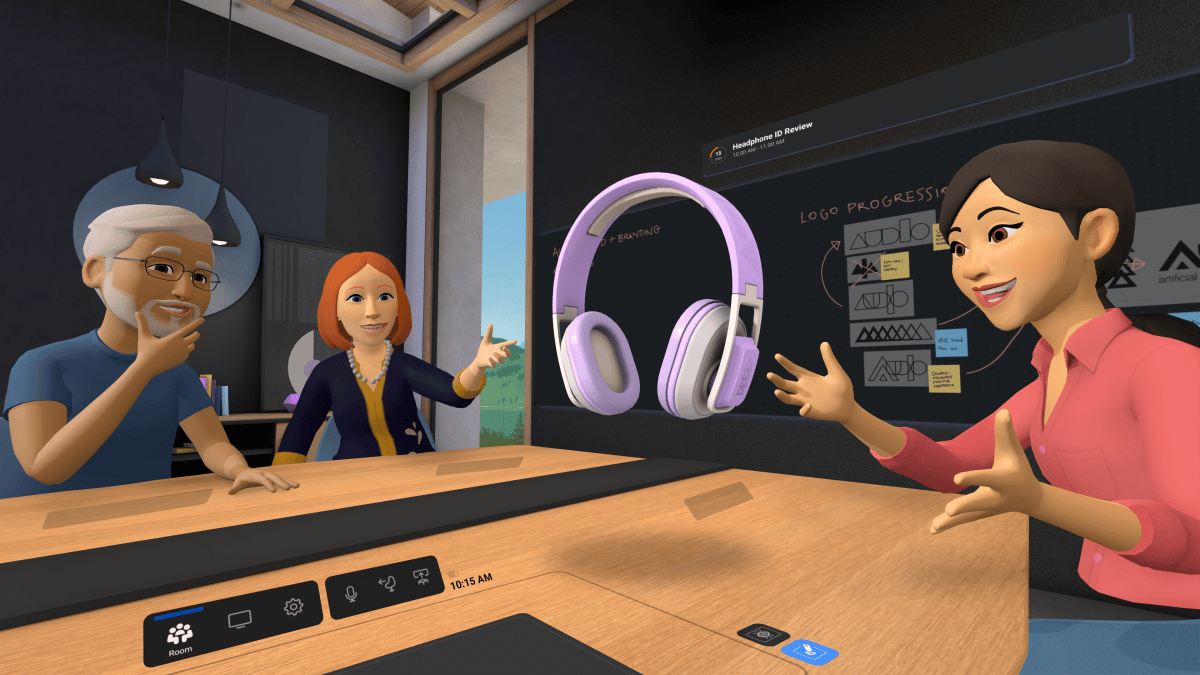In today's rapidly evolving digital landscape, the Metaverse emerges as a groundbreaking frontier, reshaping how businesses operate, innovate, and engage. This expansive digital universe, enriched with augmented and virtual realities, offers unparalleled opportunities for industries to redefine their strategies and customer experiences. In this blog, we delve into the Metaverse's implications for businesses, its transformative benefits, and the industries poised to harness its full potential.
In this blog, you will find:
📊 The Metaverse's Relevance to Business
🎉 Benefits of the Metaverse for Business
🛠️ Practical Applications of the Metaverse
🚀 How to start using the Metaverse for business
Defining the Metaverse
So, what exactly is the Metaverse? As the technology continues to evolve and new use cases emerge, our understanding of the Metaverse deepens. At its core, the Metaverse is a vast digital online world characterized by rich interactions. It's not just a static virtual space - it's dynamic and immersive.
There are several ways to access and experience the Metaverse. One is through augmented reality (AR), which involves lenses that overlay digital elements onto the real world. Then, there's virtual reality (VR), a fully immersive experience where users are entirely enveloped in a digital environment. Mixed reality (MR) combines elements of both, offering a blend of real and virtual interactions.
But the Metaverse isn't just about these realities. When you introduce artificial intelligence (AI) into the mix, the possibilities expand exponentially. The convergence of AI with augmented and virtual realities can lead to some truly innovative experiences. Imagine a world where these technologies work in harmony, enhancing our interactions and offering insights in ways we've yet to fully grasp.
The Metaverse's Relevance to Business
The Metaverse isn't just a fascinating concept; it holds tangible implications for businesses. In this expansive digital realm, companies can discover innovative ways to connect, collaborate, and even conduct their operations. The potential is vast, but with it comes a set of questions and considerations.
One of the immediate questions businesses grapple with is the nature of their presence in the Metaverse. For instance, when working within this digital space, there's the freedom to design one's environment. Imagine having a digital screen or even multiple screens without any physical constraints. You could have a display that's ten feet tall or multiple monitors arranged in any configuration, all tailored to enhance productivity.

But beyond the practicalities, there's a more personal aspect to consider. How do individuals want to be represented in the Metaverse? On days when you might not feel at your best, do you choose to appear as you are, or do you opt for an avatar, a digital representation that might reflect an idealized version of yourself? It's a choice between authenticity and aspiration.
This decision isn't just about personal preference. It has broader implications for businesses. When considering interactions with customers and colleagues, how do businesses want to present themselves? Should they opt for a genuine representation, an idealized avatar, or perhaps something entirely abstract? These are the nuances we're still navigating.
Ultimately, when we discuss the Metaverse's significance for business, we're looking at a spectrum of possibilities. On one end, there are tangible benefits like enhanced workspaces and immersive experiences. On the other, there are more abstract considerations like representation and identity. Both are crucial as we chart our course in this new digital frontier.
Benefits of the Metaverse for Business
As businesses delve deeper into the Metaverse, the potential advantages become increasingly evident. While we're still in the early stages of understanding its full impact, several use cases highlight the Metaverse's transformative potential for businesses.
One of the most compelling benefits lies in the realm of learning and development. Consider the challenges faced by industries that require intricate training for complex tasks. For instance, training a mechanic to repair an airplane engine is not only costly but also poses risks if errors are made. In the Metaverse, businesses can create a digital twin of that engine, allowing trainees to practice and refine their skills in a virtual environment. This approach not only eliminates the risk of physical damage but also offers the flexibility to conduct training sessions from anywhere.
Beyond technical training, the Metaverse also offers opportunities for experiential learning. Topics like inclusivity, gender awareness, and combating racism can be approached in a more immersive manner. Instead of traditional training sessions that might involve lectures or readings, individuals can experience scenarios firsthand in the Metaverse. Feeling the impact of one's actions or words in a simulated environment can leave a lasting impression, fostering genuine understanding and empathy.
But the benefits aren't limited to training alone. In the realm of product development, the Metaverse can revolutionize the prototyping process. Designers and engineers can create, modify, and test products in a virtual space, speeding up the development cycle and reducing costs. Imagine being able to walk around a life-sized model of a new product, examining it from every angle and making real-time adjustments.
In essence, the Metaverse offers businesses a sandbox—a space to experiment, learn, and innovate without the constraints of the physical world. As we continue to explore its potential, it's clear that the Metaverse will play a pivotal role in shaping the future of business.
Practical Applications of the Metaverse
The Metaverse's potential extends across a myriad of industries, each finding unique ways to harness its capabilities. Let's delve into some specific sectors and see how they're leveraging the Metaverse.
Customer Service and Retail
In the realm of customer service, the Metaverse offers a transformative approach to training and interaction. Imagine a scenario where a retail employee, instead of dealing with real customers, can practice their skills with AI-driven avatars in a virtual store. These avatars, powered by artificial intelligence, can simulate various customer personalities and needs. This immersive training allows employees to prepare for a wide range of scenarios, from handling a delighted customer to managing a challenging complaint.
Product Development
The product development sector stands to gain immensely from the Metaverse. Designers can create virtual prototypes, allowing for rapid iterations without the costs associated with physical models. Whether it's furniture, gadgets, or even clothing, the ability to visualize, test, and modify new products in a virtual space can significantly accelerate the development process.
Remote Work and Collaboration
The ongoing shift towards remote work has highlighted the need for effective collaboration tools. The Metaverse offers a solution by providing virtual workspaces where teams can interact as if they were in the same room. Imagine a meeting where remote participants appear as avatars, seated around a virtual conference table, discussing a 3D model of a project they're working on. This level of immersion can bridge the gap often felt in traditional video calls, fostering a sense of presence and teamwork.

How to start using the metaverse for business?
Businesses today stand at a pivotal juncture, contemplating how best to navigate the Metaverse. The question arises: How can a company truly understand the Metaverse's relevance and applicability to its operations? It's essential to discern whether the Metaverse might disrupt the business landscape, potentially placing those who don't adapt it at a competitive disadvantage.
On the flip side, the Metaverse also presents opportunities. Businesses can leverage it to carve out distinct advantages within their sectors. Whether a company boasts a dedicated innovation team, typical of larger organizations, or relies on a single individual for innovation, diving deep into the Metaverse is crucial. The most effective way to understand how your business can jump to the Metaverse is to start exploring the Metaverse itself and its applications. Engaging hands-on with the technology, understanding its nuances, and discerning its potential applications can offer invaluable insights.
Conclusion: The Metaverse - A New Horizon for Business
The Metaverse, with its vast digital landscapes and immersive experiences, is not just a fleeting trend but a paradigm shift in how businesses will operate and engage in the future. As we've explored, its applications span across industries, from enhancing customer service to revolutionizing product development and beyond. While the journey into the Metaverse may seem daunting, the rewards for businesses willing to adapt and innovate are immense. As the boundaries between the physical and digital worlds continue to blur, it's clear that the Metaverse will play a pivotal role in shaping the future of business. Now is the time for organizations to embrace this new frontier, harness its potential, and chart a course for success in an interconnected digital universe.
Are you ready to be part of the future of work?
The future of work is with LineZero! We are a trusted partner with Workplace from Meta, and we can help you be prepared for the Metaverse and the future of work while boosting internal communications and enhancing the employee experience.
Tags:
Corporate MetaverseAugust 24, 2023
.jpg?width=2000&height=514&name=VR%20for%20InclusionWomen%20in%20Tech%20(11).jpg)




Comments